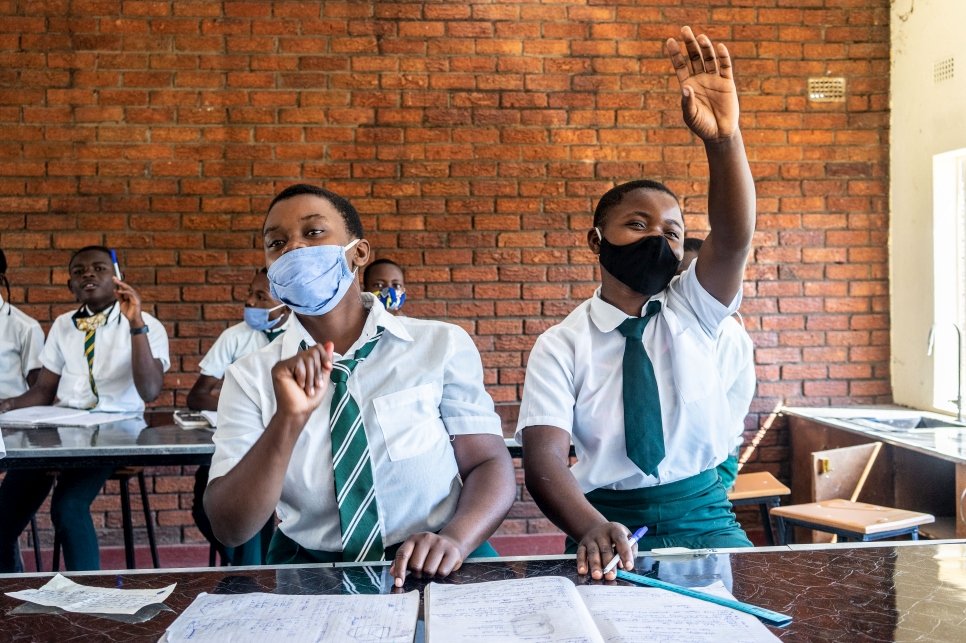UNHCR’s education report highlights the stories of young refugees around the world as they try to keep learning in the era of the COVID-19 pandemic.

Students attend a science lesson at St. Michaels secondary school in Tongogara Refugee Camp in Chipinge, Zimbabwe, on 26 April 2021. © UNHCR/Zinyange Auntony
UNHCR, the UN Refugee Agency, is calling for an international effort to guarantee secondary education for refugee children and youth, as levels of school and university enrolment remain critically low.
The call comes as UNHCR launches its 2021 Education Report, Staying The Course: The Challenges Facing Refugee Education. The report highlights the stories of young refugees around the world as they try to keep learning in an era of unprecedented disruption caused by the COVID-19 pandemic.
Secondary school should be a time of growth, development and opportunity. It increases the job prospects, health, independence and leadership of vulnerable young people, and they are less likely to be pressured into child labour.
Yet according to data gathered by UNHCR in 40 countries, the gross enrolment rate for refugees at secondary level in 2019-2020 stood at only 34 per cent. In almost every country, the rate trails that of host community children.
The pandemic is likely to have undermined refugees’ chances yet further. COVID-19 has been disruptive for all children, but for young refugees – already facing significant obstacles to getting into school – it could dash all hopes of getting the education they need.
“Recent progress made in school enrolment of refugee children and youth is now under threat,” said UNHCR chief Filippo Grandi.
“Confronting this challenge requires a massive, coordinated effort, and it is a task we cannot afford to shirk.”
UNHCR is calling on states to guarantee the right of all children, including refugees, to access secondary education, and to ensure they are part of national educational systems and planning.
In addition, states hosting large numbers of displaced people need assistance in building capacity: more schools, appropriate learning materials, teacher training for specialised subjects, support and facilities for teenage girls, and investment in technology and connectivity to close the digital divide.
The data also shows that from March 2019 to March 2020, gross enrolment rates for refugees at primary level stood at 68 per cent.
Enrolment in higher education was at 5 per cent, a 2-point rise year on year and a gain that represents transformational change for thousands of refugees and their communities. It’s an increase that also offers hope and encouragement to younger refugees facing daunting challenges to accessing an education.
Yet this level remains low when compared to global figures, and without a major increase in access at secondary level, the 15by30 target set by UNHCR and partners – 15 per cent of refugees enrolled in higher education by 2030 – will remain out of reach.
Share on Facebook Share on Twitter